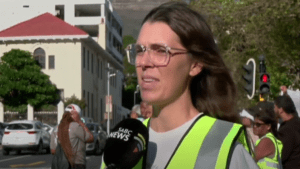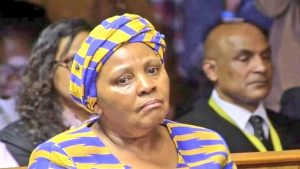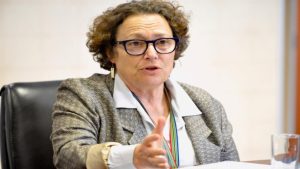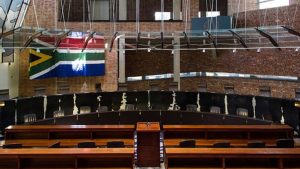The National Legislature asked for an extension to finalise the Electoral Amendment Bill after failing to meet the December 10 extended deadline. Parliament has twice failed to meet a court-imposed deadline of amending the Electoral Act.
The Bill seeks to make provisions for independent candidates to participate in national and provincial elections. This follows a successful Constitutional Court (ConCourt) challenge by the New Nation Movement and a group of independent candidates who challenged the constitutionality of the Act more than two years ago.
It was on the 11 of June 2020 when Constitutional Court Justice Mbuyiseli Madlanga declared the Electoral Act unconstitutional. He gave Parliament 24 months to rectify the defect in the Act in line with the Constitution.
“It is declared that the Electoral Act 73 of 1998 is unconstitutional to the extent that it requires that adult citizens may be elected to the National Assembly and provincial legislatures only through their membership of political parties. 5. The declaration of unconstitutionality is prospective with effect from the date of this order but its operation is suspended for 24 months to afford Parliament to remedy the defect giving rise to the unconstitutionality,” said Madlanga when he delivered a landmark judgment.”
Parliament missed its first ConCourt deadline of the 10th of June 2022. It successfully applied for a six-month extension and was granted a new deadline of the 10th of December. The Bill went through the National Assembly process and was passed on 20 October, and sent to the National Council of Provinces (NCOP) for concurrence.
The NCOP’s Select Committee on Justice and Security made further amendments. During the hearings, Electoral Commission Chairperson, Mosotho Moepya, told the members that the crux of the debate on the Bill was about the allocation of seats.
“When we started I indicated that there has been a significant amount of interest in this Bill. But it hasn’t been so much the simple writing of the law. It has been the technical part of how seats are allocated. This is unprecedented. We have never had that situation but we understand and that’s why today it’s as if we are attending a lecture in some mathematics or statistics or something like that. It’s unfortunately what it is and what we have to deal with. And in that process, I noted comments from three members saying not everyone is mathematically inclined. And that makes it difficult. That is the thing that makes this bill when people ask about how these are allocated and they disagree and you explain, and you lose them, they simply say you are going to take votes for Independent (Candidates) and give them to parties. I guess when we explain and through the formula, you will realise that that is the myth. There is no vote that is intended for one and this is a myth that is unfortunately so widespread and the mathematics, the law doesn’t say so in terms of this Bill.”
The National Council of Provinces (NCOP) proposed what is described as substantial and material changes. The Portfolio Committee on Home Affairs says they require public consultation on this – and has asked for another extension. The proposed changes include the number of signatures of support needed for independent candidates to be included on the ballot papers.
Parliament Spokesperson Moloto Mothapo gave the reasons for the extension, days before the deadline of 10th December.
“The changes proposed by the NCOP which are substantial and material in nature also speak to the proper deliberative process followed by parliament and which require further public participation. It lights off the materiality of the NCOP’s proposed amendment and the fact that they introduced matters on which the public had no opportunity to comment, the National Assembly is obliged to facilitate further public participation. The proposed amendments that particularly require further consultation include contentions that there is a need for broader electoral reform even broader than merely including independent candidates in the 2024 election and concerns that the Bill treats independent candidates unfavourably compared to political parties when it comes to the signatures of support that must be obtained for inclusion in the ballot paper, the practical consequences for these amendment proposed is that the Bill had to be referred back to the National Assembly for consideration. As a consequence, it will not be possible to pass the Bill by the tenth of December this year.”
In reaction, the Executive Secretary for the Council of the Advancement of the South African Constitution, Lawson Naidoo, said Parliament’s call for another extension revealed how poorly the National Legislature handled the process.
“Parly has run this haphazardly, with no proper public participation process up to now…and even now on basis of a second extension, given Dec holidays how adequate will that time be? for some key changes made by NCOP to the draft electoral amendment bill.”
The Electoral Commission of South Africa (IEC) welcomed the extension granted by the Concourt. It said this will not hamper its preparation for the 2024 national and provincial elections. The Bill is now expected to be finalised by the end of February next year.






